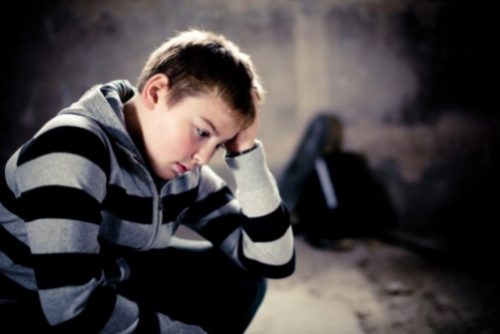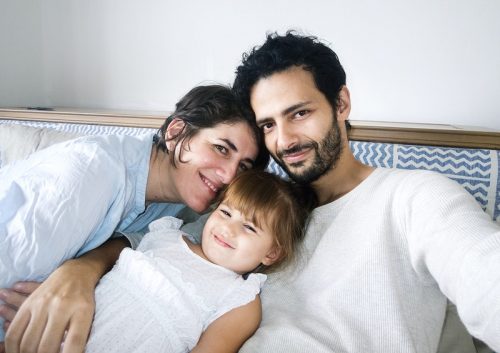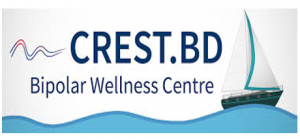What is bipolar disorder? What are the negative impacts it can bring to a person’s life? Is the disorder curable? Some information also talks about its effects on individuals. It is typically developed more in teens and young adults, but it can manifest in kids as young as six years old.

Source: doorwaysarizona.com
Presently, it has become a contentious diagnosis. Several medical professionals agree that it is atypical and just being overly diagnosed. Others, on the other hand, have conflicting claims. So at this moment, it is difficult to confirm just how typical this mental illness is.
Mental health treatment is an effective plan for Bipolar Disorder, with many options that may help someone manage their symptoms. Interpersonal and Social Rhythm Therapy (IPSRT) focuses on stabilizing sleep-wake cycles, as these can be important markers for early warning signs of the condition. Cognitive Behavioral Therapy (CBT) works to identify and change underlying thought patterns and beliefs that can lead to changes in mood. Group Psychoeducation is another effective technique, as it helps people understand their mental health conditions better, and create support groups with others facing similar life events. The dialectical behavior approach is specifically tailored to those with BD, teaching skills such as mindfulness and emotion regulation in confronting frightening life events.
Treatment for this illness typically includes a combination of mood-stabilizing medication and developing coping skills. A mood stabilizer, a set of medications prescribed by healthcare professionals, can help prevent major depressive episodes, manic episodes, and even substance abuse problems. When they develop coping skills, individuals with BD can manage their mental illness symptoms and avoid major depression relapse. In addition to medication and mental health treatment, complementary treatments such as exercise may also be helpful in managing this debilitating illness.
Another disorder known as DMDD or Disruptive Mood Dysregulation Disorder has also been recognized to affect children who are 6 to 18 years old and experiencing extreme and progressive temper outbursts and irritability that do not meet the normal classifications of bipolar disorder.
Thus, it is vital not to make hasty conclusions. If your teen or young adult is diagnosed with the disorder, you can always get a second opinion before finding an appropriate regimen for the disorder. This can include a social rhythm or family-focused approach that is catered to by a mental health professional.
Be sure that you feel safe and satisfied with your child’s mental health professionals specializing in affective disorders.
What Is Bipolar Treatment For Teens And The Young?
Establishing BD in the young is not easy, as many of its symptoms are comparable to conditions like conduct disorders or ADHD – or even the simple presentation of a child’s behavior. A particular concern is that the medicines taken by a child with ADHD are frequently stimulants, and these can cause mania or euphoria in kids with BP.
Young children who experience manic episodes could be more aggressive compared to normal adults. They might present with more psychotic indications, seeing and hearing things that are not really there. In a depressive attack, they would mostly report physical symptoms, such as pains and aches.
Among the most prominent differences is that Bipolar Disorder in kids cycles more rapidly. And though in adults, depressive and manic or depressive episodes may happen in intervals of weeks, months, and years, these episodes may all occur within one day in children.
People with BD may experience manic and depressive episodes and may benefit from therapy as part of their treatment options. This may involve coping skills and techniques to manage stress, along with medication such as mood stabilizers. Maintenance treatment can be helpful in managing symptoms and reducing the frequency and intensity of bipolar episodes. Alternative medicine and other treatments may also be considered. A support group and working with a psychiatric nurse can also provide helpful support. Maintaining a healthy diet can also be beneficial in managing bipolar mood shifts.
Treatment is an essential part of the treatment plan and can help those struggling with the condition to reduce symptoms, manage their emotions, and prevent new manic or hypomanic episodes of depression. The National Alliance on Mental Illness (NAMI) recommends family-focused, interpersonal and social rhythm, emotion regulation, and cognitive-behavioral therapy as the latest research-based treatments for bipolar disorder. In these therapies, daily routines are established to help structure the day, and regular problem-solving is encouraged in order to foster problem-solving and case-management skills.
Helping My BP Child Heal

Source: mom.com
Bipolar Disorder Guide and Recommendations
If you are a parent of a young adolescent or teen with a disorder, there are many things you can do to help your child deal with BP. Here are some recommendations.
Treatment sessions provide a safe space for depressed individuals to discuss difficult feelings, develop interpersonal skills, and work on strategies to manage mood swings and depression. Research shows that people who engage with therapists feel better after every session.
Follow A Routine
Kids who are diagnosed with BD can make use of a daily routine. Assist them initially in getting up from bed, eating proper meals, doing some physical activity, and heading to bed at almost the same time nightly. In addition, do your best to decrease anxiety, stress, and mood disorders in the home.
Speak With His Teachers
In some instances, a young adolescent or teen with BP may require special breaks at school. For example, they may need their assignments or projects to be lessened when they are experiencing tough times or use more short breaks while they’re in school.
Speak with your kid’s teachers and the school administrator so that you can come up with an agreement that will help your child tackle school. In some scenarios, you might need your child to take a few days off from school until their bipolar depression subsides or stabilizes.
Monitor The Schedule For Taking Medications
Your child must take his medications at the recommended time. Use sticky notes, pillboxes, timers, and other things that can help you remember. If your young has to take his medicines at school, let his teacher or the school nurse know.
Take Note Of The Side Effects
Most medicines prescribed for bipolar disorder, such as antipsychotics, antidepressants, and mood stabilizers, were previously prescribed for adults, and only very few have been studied in kids and teens.
As a result, some children are most susceptible to presenting with side effects from these medicines, like changes in blood sugar levels, weight gain, and cholesterol levels due to some potent antipsychotics. Ask your child’s primary physician about the signs to watch out for.
Reach Out To A Family Counselor
Raising a child with BP can completely change the entire family dynamic. It can place an extra burden on you and your partner’s relationship. Your other kids do not know what’s happening to their siblings, or they could be insecure about the attention you give to your bipolar child.
Seeking family counseling for bipolar disorder treatment can help with mental health problems and people diagnosed with the illness. It allows the rest of the family members to identify and manage these kinds of matters by creating a bipolar support alliance.
Treatment for this is life-long. The American Psychiatric Association recommends developing a consistent routine and identifying triggers to help manage symptoms. Therapy can also involve working with a psychiatric nurse or joining a support group to improve coping skills without needing other treatments. Additionally, lifestyle changes such as improved sleep and abstinence from unsafe sex can help in the maintenance treatment of bipolar disorder, as well as reach out to a family member for help.
Do Not Ignore Suicidal Threats
Parents don’t probably imagine that their child might hurt himself. But, sadly, it can be happy even with your young teen. So if he starts to tell you that he wants to disappear or literally die or tries to harm himself, please take it seriously. Keep any sharp objects, weapons, or harmful drugs from your home, and get help immediately.

Source: ventureacademy.ca
Bipolar Disorder Management in Teens
In teenagers or young adults, the indications and management of BP are comparable to those that manifest in adults. However, raising a teen with this illness presents numerous problems. As they grow older, these teens could resent you for enforcing a plan for treating bipolar disorder.
So perhaps the most sensible solution would be to let them join in on the conversation. Have an honest talk regarding the way how to treat BD. Navigate through options with your child’s physician or counselor, and bring your teen along.
Insights And Takeaway To Consider
Similar to adults, it is essential for teens with BP to keep away from drugs and alcohol, as these can interact with their medications or worsen their mood swings. In addition, the hazards of experiencing drug or alcohol abuse are greater in teenagers with BP than in their peers.
It is crucial to keep up with the routines regarding waking and sleeping times and learn effective coping mechanisms for dealing with the stress that comes with bipolar disorder.
Frequently Asked Questions
What Approach Is Most Effective For Managing Bipolar Disorder?
The best bipolar illness treatment frequently combines medication and counseling. Cognitive behavioral therapy, mood stabilizers, antipsychotics, and potentially antidepressants may be part of a complete treatment plan. Lifestyle modifications like sleep and exercise can help. Healthcare specialists should handle the tailored therapy for bipolar disorder. This multi-pronged approach is essential for managing this mental health disorder.
What Kind Of Challenges Are Psychologists Confronted With In Relation To Bipolar Illness?
Psychologists face several challenges with bipolar illness, including diagnosis accuracy, treatment adherence, and comorbidities like other mental health issues or substance abuse. Managing the fluctuating mood states, from mania to depression, is complex. They also have to work closely with psychiatrists who may be managing the medication aspect. Occasionally, electroconvulsive therapy may be considered for severe cases.
What Things Should A Bipolar Person Avoid Doing?
Bipolar illness patients should minimize stress and sleep deprivation, which may promote mood swings. To prevent medication interactions and worsen symptoms, avoid alcohol and drug addiction. Maintaining a schedule and avoiding risky actions during manic episodes are essential. Family members should also be educated on these aspects for better support.
Is Psychotherapy A Helpful Approach For Those With Bipolar Illness?
Psychotherapy and medication are routinely prescribed for bipolar illness. Cognitive behavioral, family-focused, and other behavioral therapies may help manage the illness. They assist in identifying and managing mood changes. Sometimes, focused therapy methods are utilized for specific challenges.
How Do You Beat Bipolar Naturally?
Bipolar illness is persistent and typically needs medication treatment. Exercise, sleep, and stress management may help, however. These may supplement a professionally authorized treatment plan but should not be used as a standalone treatment.
How Do You Calm A Bipolar Person?
Calming a person with bipolar disorder during a manic or depressive episode can be challenging. Empathy, active listening, and maintaining a non-confrontational stance can help. Consult healthcare providers for a comprehensive treatment approach, which may include medication.
What Happens If Bipolar Is Untreated?
Untreated bipolar disease may cause dramatic mood fluctuations, poor career or academic performance, and family strife. In extreme cases, untreated bipolar illness may cause suicide or self-harm. Thus, prompt diagnosis and treatment are essential. This highlights the gravity of leaving mood disorders untreated.
Can bipolar illness be managed effectively by therapy?
Therapy is necessary to treat bipolar illness. Combining it with medicine typically works best. CBT and family-focused therapy work well. These therapies aim to involve people with bipolar disorder in active treatment.
Can CBT help manage the illness?
Bipolar disorder patients are commonly prescribed CBT. It helps people with bipolar identify mood swings, causes, and cognitive patterns to manage the illness better.
What is the first-line treatment for bipolar illness?
First-line treatment includes mood stabilizers or antipsychotics and psychotherapy. The therapy seeks to moderate mood fluctuations and avoid sickness extremes. This treatment is generally considered the standard for people with bipolar disorder.
How does one care for his loved one with BD?
Caring for a loved one with bipolar disorder involves understanding the disorder, being supportive during therapy sessions, and aiding in medication adherence. Open communication, emotional support, and consulting healthcare providers for an effective treatment plan are crucial.
What is the most effective tool for assessing the illness?
The most effective tools for assessing bipolar disorder are clinical interviews, psychological tests, and, sometimes, symptom-tracking apps. These are typically administered by healthcare professionals skilled in mental health assessment.
How can I treat it myself? It is strongly advised not to self-treat bipolar disorder.
A proper diagnosis and treatment plan under the supervision of healthcare professionals are essential for effective management.
What type of mental health approach is best for it?
Medication, psychotherapy, and lifestyle adjustments are best for bipolar disorder. Mental health specialists should oversee this entire strategy. In certain severe cases, electroconvulsive therapy may be recommended.
What are its therapy goals?
Bipolar disorder treatment aims to stabilize mood, reduce episode frequency and intensity, and improve everyday functioning. A steady and meaningful existence is the long-term goal. Effective treatment often involves a team approach, including psychologists and family members for support.








